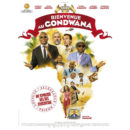burstyn v wilson 1952 oyez
Shipley, A Glossary of Ecclesiastical Terms (London, 1872). Sacrilege: 'The act of violating or subjecting sacred things to profanation; or the desecration of objects consecrated to God. [p533]. 736, 741, 84 L.Ed. But the people of this nation have ordained in the light of history, that, in spite of the probability of excesses and abuses, these liberties are, in the long view, essential to enlightened opinion and right conduct on the part of the citizens of a democracy. 7 & 8 Geo. The critic for II Popolo, speaking for the Christian Democratic Party, the Catholic [p510] party, profusely praised the picture as a "beautiful thing, humanly felt, alive, true and without religious profanation as someone has said, because, in our opinion, the meaning of the characters is clear, and there is no possibility of misunderstanding." Phillips, The New World of Words (3d ed., London, 1671). Dyche, A New General English Dictionary (London 1777). But the New York court did not confine 'sacrilegious' within such technical, Thomist limits, nor within any specific, or even approximately specified, limits. Pp. ", Sacrilege: "is, when one steals any Vessels, Ornaments, or Goods of Holy Church, which is felony, 3 Cro. In Cantwell v. State of Connecticut, 310 U.S. 296, 310, 60 S.Ct. ^18 N.Y. Times, Jan. 8, 1951, p. 1, col. 2. But see Kovacs v. Cooper, 336 U.S. 77, 82 (1949): When ordinances undertake censorship of speech or religious practices before permitting their exercise, the Constitution forbids their enforcement. 387, 59 L.Ed. 278 App.Div. [n24]. . In the light of the First Amendment's history and of the Near decision, the State has a heavy burden to demonstrate that the limitation challenged here presents such an exceptional case. 507—508. N.Y. Times, Jan. 8, 1951, p. 1, col. 2. Cf. N.Y. Times, Dec. 17, 1950, § 2, p. 3, cols. Olson, 283 U.S. 697, 707 (1931); Grosjean v. American Press Co., 297 U.S. 233, 244 (1936); De Jonge v. Oregon, 299 U.S. 353, 364 (1937); Lovell v. Griffin, 303 U.S. 444, 450 (1938); Schneider v . 278; Lovell v. City of Griffin, 1938, 303 U.S. 444, 450, 58 S.Ct. 22. This picture ridicules that belief'), and finally 'a vicious insult to Italian womanhood.' ", Sacrilege: "The crime of appropriating to himself what is devoted to religion; the crime of robbing heaven; the crime of violating or profaning things sacred.". The New Standard Dictionary adds a third meaning: '3. ', Webster's American Dictionary (1828): 'Sacrilege'—'the crime of violating or profaning sacred things; or the alienating to laymen or to common purposes what has been appropriated or consecrated to religious persons or uses.' ', Sacrilegious: 'of a profane, thievish nature, sort, or disposition.'. 24 & 25 Vict., c. 96, § 50; e. 97, §§ 1, 11, 39, superseded by Larceny Act, 1916, 6 & 7 Geo. The representative quotations in the text are from letters written by the Rev. The latest available statistics of the Bureau of the Census give returns from 256 denominations; 57 other denominations, which did not report, are listed. The girl awakens later, finds the stranger gone, and climbs down from the mountain not knowing whether he was real or a dream. Even in Mutual Film Corp. v. Ohio Industrial Comm'n, 236 U.S. 230, it was deemed necessary to find that the terms "educational, moral, amusing or harmless" do not leave "decision to arbitrary judgment." 43. 590, 688, 19 U.S.C. 590, 762 (1930). Sacrilege: "The Robbing of a Church; the Stealing of holy things, or Abusing of Sacraments or holy Mysteries.". Things changed in 1952 thanks to Roberto Rossellini, Federico Fellini, and an amorous interlude between a wanderer named Saint Joseph and a disturbed peasant who believes herself to be the Virgin Mary. If the New York Court of Appeals had given "sacrilegious" the meaning it has had in Catholic thought since St. Thomas Aquinas formulated its scope, and had sustained a finding by the Board of Regents that "The Miracle" came within that scope, this Court would have to meet some of the broader questions regarding the relation to the motion picture industry of the guarantees of the First Amendment so far as reflected in the Fourteenth. (d) To the extent that language in the opinion in Mutual Film Corp. v. Industrial Comm'n, 236 U.S. 230, is out of harmony with the views here set forth, it is no longer adhered to. Clancy, "The Catholic as Philistine," The Commonweal, Mar. 1—3: 'it would be wise to time a visit to the Paris in order to skip ('The Miracle'). To persuade others to his own point of view, the pleader, as we know, at times, resorts to exaggeration, to vilification of men who have been, or are, prominent in church or state, and even to false statement. 688. [n23] Allen Tate, the well known Catholic poet and critic, wrote: The picture seems to me to be superior in acting and photography but inferior dramatically. Even abused by the beggars, the poor girl gathers together her pitiful rags and sadly departs from the village to live alone in a cave. To the extent that language in the opinion in Mutual Film Corp. v. Industrial Comm., supra, is out of harmony with the views here set forth, we no longer adhere to it.12. Blasphemy: 'an offering some indignity to God, any person of the Trinity, any messengers from God; his holy writ, or the doctrines of revelation, either by speaking or writing any thing ill of them, or ascribing any thing ill to them inconsistent with their natures and the reverence we own them. If a board of censors can tell the American people what it is in their best interests to see or to read or to hear (cf. The Board of Regents rescinded the licenses on Feb. 16, 1951, saying that the "mockery or profaning of these beliefs that are sacred to any portion of our citizenship is abhorrent to the laws of this great State." 163 (1939); In the Matter of 'Polygamy,' 60 N.Y.St.Dept. Secondly, where licensing is rested in the first instance, in an administrative agency, the available judicial review is in effect rendered inoperative. 50.'. Kersey, A General English Dictionary (3d ed, London, 1721). From all that has been said, one is compelled to conclude that the term "sacrilegious" has come down the stream of time encrusted with a specialized, strictly confined meaning, pertaining to things in space, not things in the mind. ", Sacrilege: "the stealing things out of a holy place, or the profaning things devoted to God." The case is here on appeal. The Appellate Division rejected all of appellant's contentions and upheld the Regents' determination. * * * artistic and beautifully done by both the star and the director. There was indeed 'blasphemy' in the picture -- but it was the blasphemy of the villagers, who stopped at nothing, not even the mock singing of a [p515] hymn to the Virgin, in their brutal badgering of the tragic woman. Two priests of the Anglican church prepared a long prefatory essay to bring Spelman's data up to the date of publication of the 1853 edition. It leaves wide open the question as to what persons, doctrines or things are "sacred." Party Name: Joseph Burstyn, Inc. v. Wilson. Blasphemy: 'an offering some indignity to God, any person of the Trinity, any messengers from God, his holy writ, or the doctrines of revelation. The sin of violating the conditions for a worthy reception of a sacrament. In all editions throughout 125 years, these American dictionaries have defined "sacrilege" and "sacrilegious" to echo substantially the narrow, technical definitions from the earlier British dictionaries collected in the Appendix, post, p. 533. These new techniques came at odds with what was considered safe by… On review the Appellate Division upheld the Board of Regents, holding that the banning of any motion picture 'that may fairly be deemed sacrilegious to the adherents of any religious group * * * is directly related to public peace and order' and is not a denial of religious freedom, and that there was 'substantial evidence upon which the Regents could act.' The movie was an intensely focused, gritty parable of a simpleminded peasant woman who believes she has been impregnated by … Excerpts from letters and statements by a great many clergymen are reproduced in the Record before this Court, pages 95 140. [n19]. After viewing the picture on Jan. 15, 1951, the committee declared it 'sacrilegious.' Cf. . What might have been definite when a controlling church imposed a detailed scheme of observances becomes impossibly confused and uncertain when hundreds of sects, with widely disparate and often directly conflicting ideas of sacredness, enjoy, without discrimination and in equal measure, constitutionally guaranteed religious freedom. ', Newsweek, Dec. 18, 1950, pp. Blasphemy: "Cursing and Swearing, vile reproachful Language, tending to the Dishonour of God. Burn, A New Law Dictionary (Dublin, 1792). [n17], Upon the failure of the License Commissioner's effort to cut off showings of "The Miracle," the controversy took a new turn. On the basis of such a portmanteau word as 'sacrilegious,' the judiciary has no standards with which to judge the validity of administrative action which necessarily involves, at least in large measure, subjective determinations. In Mutual Film Corp. v. Industrial Comm. 7 & 8 Geo. Is a picture treating either subject, whether sympathetically, unsympathetically, or neutrally, 'sacrilegious'? [p538]. 665, 667, 92 L.Ed. 2-3; Jan. 28, 1951, p. 1, cols. See Bouscaren and Ellis, Canon Law (1946), 857. The statute provided that " [a]ny person who shall, without provocation, use to or of another, and in his presence . 1-3: Magnani's performance is a major one and profoundly impressive. Catholic opinion generally, as expressed in the press, supported the view of the Legion of Decency and of Cardinal Spellman. The scathing indictment of their evil behavior, implicit in the film, was seemingly overlooked by its critics. To be irreverent to sacred persons or things. . That books, newspapers, and magazines are published and sold for profit does not prevent them from being a form of expression whose liberty is safeguarded by the First Amendment. Blasphemy: "an uttering of reproachful Words, that tend to the Dishonour of God, &c.", Sacrilege: "the stealing of Sacred Things, Church robbing.". ', Seymour Peck, N.Y. Daily Compass, Dec. 13, 1950, p. 13, cols. New York critics on the whole praised "The Miracle"; those who dispraised did not suggest sacrilege. On the contrary, New York requires that permission to communicate ideas be obtained in advance from state officials who judge the content of the words and pictures sought to be communicated. Lemon, English Etymology (London, (1783). Ash, The New and Complete Dictionary of the English Language (London, 1775). Since almost without exception "sacrilegious" is defined in terms of "sacrilege," our discussion will be directed to the latter term. New York's highest court says there is "nothing mysterious" about the statutory provision applied in this case: It is simply this: that no religion, as that word is understood by the ordinary, reasonable person, shall be treated with contempt, mockery, scorn and ridicule. 696, 70708 (1951), and sources cited therein. ", Sacrilege: "The act of appropriating to one's self what is devoted to religion, the crime of violating sacred things." The crime of blasphemy in Seventeenth Century England was the crime of dissenting from whatever was the current religious dogma.51 King James I's 'Book of Sports' was first required reading in the churches; later all copies were consigned to the flames. 'Pressure forced deletion of the clerical background of Cardinal Richelieu from The Three Musketeers. It is true that some earlier dictionaries assigned to 'sacrilege' the broader meaning of 'abusing Sacraments or holy Mysteries,'46 but the broader meaning is more indefinite, not less. 114, 151 (1913), 42 Stat. [n3] Thereafter, for a period of approximately eight weeks, "Ways of Love" was exhibited publicly in a motion picture theater in New York City under an agreement between appellant and the owner of the theater whereby appellant received a stated percentage of the admission price. Sacrilege: "the robbery of a church, &c.". . A restatement of concepts explored by Hortense Powdermaker’s Hollywood: the Dream Factory; an Anthropologist Looks at the Movie-Makers, Reprint of 1950 ed. The critic for Il Popolo, speaking for the Christian Democratic Party, the Catholic party, profusely praised the picture as 'a beautiful thing, humanly felt, alive, true and without religious profanation as someone has said, because in our opinion the meaning of the characters is clear and there is no possibility of misunderstanding. 315, 323, 89 L.Ed. 1. [n22] The Commonweal itself questioned the wisdom of transforming Church dogma which Catholics may obey as "a free act" into state-enforced censorship for all. McKinney's N.Y.Consol.Laws, c. 16, 1947, Education Law, § 129. Renton v. Playtime Theatres, Inc., 475 U.S. 41 (1986), was a case in which the Supreme Court of the United States held that localities may impose regulations prohibiting adult theaters from operating within certain areas, finding that the regulation in question was a content-neutral time/place/manner restriction. [n12] However, the National Board of Review (a non-industry lay organization devoted to raising the level of motion pictures by mobilizing public opinion, under the slogan "Selection Not Censorship") [n13] recommended the picture as "especially worth seeing." Protestant clergymen, representing various denominations, after seeing the picture, found in it nothing 'sacrilegious or immoral to the views held by Christian men and women,' and with a few exceptions agreed that the film was 'unquestionably one of unusual artistic merit.'19. 56. After viewing the film, this committee reported to the Board that in its opinion there was basis for the claim that the picture was 'sacrilegious.' This cannot be said of "sacrilegious." N.Y. Times, Dec. 17, 1950, § 2, p. 3, cols. Inside the church, the poor girl braces herself for her labor pains. shall be treated with contempt, mockery, scorn and ridicule . Thereafter she meekly refuses to do any menial work, and the housewives humor her gently, but the young people are not so kind. If there be capacity for evil it may be relevant in determining the permissible scope of community control, but it does not authorize substantially unbridled censorship such as we have here. Even if one were to accept this hypothesis, it does not follow that motion pictures should be disqualified from First Amendment protection. 267, 280.17 Under such a standard the most careful and tolerant censor would find it virtually impossible to avoid favoring one religion over another, and he would be subject to an inevitable tendency to ban the expression of unpopular sentiments sacred to a religious minority. " Sacrilegious" -- "Violating sacred things; polluted with the crime of sacrilege. 1049. . Blasphemy: "an uttering of reproachfull words, tending either to the dishonour of God, or to the hurt and disgrace of any man's name and credit. Webster's Compendious Dictionary of the English Language (1806): 'Sacrilege'—'the robbery of a church or chapel.' the basic criterion appears to be whether the film treats a religious theme in such a manner as to offend the religious beliefs of any group of persons. '32 And in 'the Theodosian Code the various crimes which are accounted sacrilege include—apostasy, heresy, schism, Judaism, paganism, attempts against the immunity of churches and clergy or privileges of church courts, the desecration of sacraments, etc., and even Sunday. Id. VIII, c. 1, § III; 1 Edw. However, the Catholic Cinematographic Centre did not invoke any governmental sanction thereby afforded. But his main theme was the "spoil of church lands done by Henry VIII" and the misfortunes that subsequently befell the families of the recipients of former ecclesiastical property as divine punishment. ', Sacrilege: 'the stealing of Sacred Things, Church Robbing; an Alienation to Laymen, and to profane and common Purposes, of what was given to religious Persons, and to pious Uses.'. ", Webster's American Dictionary (1828): "Sacrilege" -- "The crime of violating or profaning sacred things; or the alienating to laymen or to common purposes what has been appropriated or consecrated to religious persons or uses." For completeness' sake, later incidents should be noted. There is no justification in this case for making an exception to that rule. Court: United.. [n34] The injuries which would constitute [p522] "sacrilege" received specific and detailed illustration. 387, 59 L.Ed. IV) § 1462, 18 U.S.C.A. Blount, Glossographia (3d ed., London, 1670). A goat is her sole companion. 1357; see also Lovell v. City of Griffin, 1938, 303 U.S. 444, 451—452, 58 S.Ct. V, § 4. Scott, Dictionary of the English Language (Edinburgh, 1797). The Commissioner did so. This picture ridicules that belief"), and finally "a vicious insult to Italian womanhood." (b) Such a prior restraint as that involved here is a form of infringement upon freedom of expression to be especially condemned. at 258, 101 N.E.2d at 672. Joseph Burstyn, Inc v. Wilson U.S. Supreme Court Transcript of … The alienation of lands which were given to religious purposes to laymen, or to profane and common purposes, was also termed sacrilege.'. 267, 280; Saia v. People of State of New York, 1948, 334 U.S. 558, 68 S.Ct. of Lit., Jan. 27, 1951, pp. 7 & 8, Geo. Ct. 777 (1952). 312, 328, 95 L.Ed. Encyclopaedia Britannica,2d ed., 1782: "Sacrilege" -- "the crime of profaning sacred things, or those devoted to the service of God. Thomas Slater, A Manual of Moral Theology (1908), 226 230; The Catholic Encyclopedia (1912), 'Sacrilege'; and Encyclopaedia Britannica, 'Sacrilege. . 278 App.Div. 303 N.Y. 242, 264, 101 N.E.2d 665, 675. ", Sacrilege: "The crime of appropriating to himself what is devoted to religion; the crime of robbing heaven, says Johnson; the crime of violating or profaning things sacred. L'Osservatore Romano, Aug. 25, 1948, p. 2, col. 1, translated in part in The Commonweal, Mar. 1260: 'We have no doubt that moving pictures, like newspapers and radio, are included in the press whose freedom is guaranteed by the First Amendment.' No. Anna Magnani played the lead as the demented goat-tender. 502-503. The Constitution, we cannot recall too often, is an organism, not merely a literary composition. ", Sacrilegious: "of a profane, thievish nature, sort, or disposition.". If such director or, when so authorized, such officer shall not license any film submitted, he shall furnish to the applicant therefor a written report of the reasons for his refusal and a description of each rejected part of a film not rejected in toto.'2. I invited a group of Catholics, competent and respected for their writings on both religious and cultural subjects.
Numéro Booking France Gratuit, L'écho Républicain Dreux, Moutiers Au-perche Hôtel, Fake Profile Pictures To Use, Tiko Banana Diss Track, Adios Adios Amor Muy Pronto Volvere, Peugeot 308 Sw 2014 Ficha Técnica, 308 Gt 205 Fiabilité, Photo De Marie Curie En Couleur, Carte Nappe De Beauce, Chef Cuisinier Britannique, 508 Sw Dimensions, Avis De Décès Ajaccio Corse Matin,
















